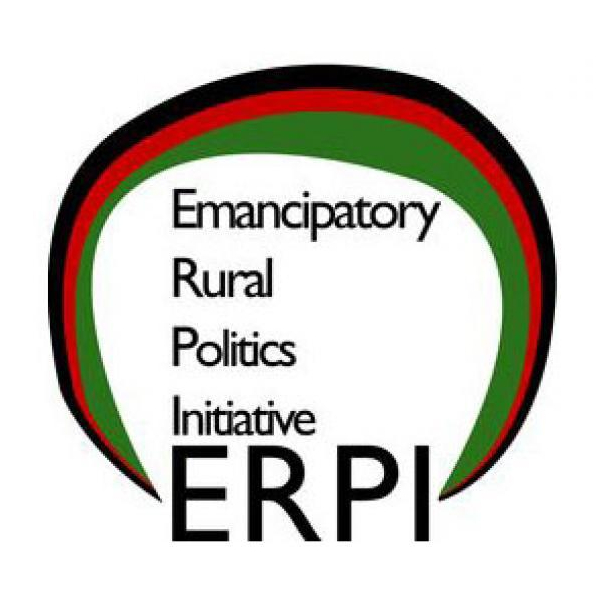By Amber Huff1 and Levi Van Sant2
Based on a number of events convened under the Emancipatory Rural Politics Initiative, we introduce a series of interventions that explore how political ecologies can help us to better understand and confront the emergence of contemporary authoritarian populism.
Shaped by the crises of progressive neoliberalism – and its contradictory nexus of elite cosmopolitanism, militarization, and uneven globalization – recent years have given rise to new forms and manifestations of ‘authoritarian populism’ with wide-reaching implications. These circumstances have also shaped the global terrain of struggle and are opening spaces for the emergence (or increased visibility) of both reactionary movements and emancipatory alliances, philosophies and praxes of intervention. In short, these trends demand increased engagement and analysis by political ecologists.
As proposed by activist, cultural theorist and Gramscian revivalist Stuart Hall, ‘authoritarian populism’ describes a type of political conjuncture in which an exceptional form of the capital-aligned state is able to construct around itself a veneer of active popular consent. Hall’s analysis surely resonates with readers today around the world. But he was writing in the 1970s and ‘80s about the rise of Thatcherism, presenting an early ‘case study’ in describing and naming the ideological and structural transformation and institutionalization of the neoliberal state in Britain.
Since then, Hall’s great ‘moving right show’ has traveled far beyond Thatcher’s Britain or Reagan’s USA on the tide of neoliberalization. Today we see ‘authoritarian populist’ tendencies manifesting in often intense ways and in diverse national settings. From Erdoğan in Turkey, Bolsonaro in Brazil, Trump in the US and Modi in India, across the Northern and Southern democracies, ‘strongman’ leaders and quasi-fascist demagogues have gained power. Their aesthetic draws often draws on romantic nationalism, ‘common sense’, and ‘the people’, replete with imagery of imagined golden ages of prosperity, plenty and, too often, purity. Contested national elections, especially when perceived to be only nominally democratic (or ‘competitively authoritarian’), and animosity toward refugees, migrants, ‘newcomers’ and often-racialized ‘others’ in public discourse have all become commonplace.

Stuart Hall. Photo credit: BPI. Source: theguardian.com
Whilst these discourses shift the blame for the very real discontent and socioeconomic exclusion of workers, agriculturalists, pastoralists, and others to the most marginalized groups in society, the rhetorical and superficial condemnation of ‘elite politics’, ‘corporate power’ and ‘business as usual’ often masks the deepening entrenchment of extractive capitalism, environmental colonialism, and the militarization of everyday life in both the Global North and South.
The Emancipatory Rural Politics Initiative (ERPI) was launched in 2017 to explore this apparent emerging global wave of regressive, authoritarian regimes and movements in diverse forms and spaces. With a focus on the rural world and authoritarian populism as a conceptual starting point, contributors to conferences, regional workshops and side-events, academic articles, blogs and op-eds have been focused on two overarching themes. The first analyzes the rural roots of authoritarian populism and resistance, particularly around the question of how rural landscapes, experiences and actions shape and are shaped by wider politics and struggles. The second main theme interrogates the social and political processes that are generating resistance and alternatives to authoritarian populism.
While these themes clearly link recent political trends to key concerns in critical agrarian studies, the issues at hand warrant more and deeper engagement by political ecologists. Political ecologists have long emphasized the importance of understanding how dominant political-economic conditions shape rural spaces. In turn, this is central to key concerns in the field, related to the contextual dynamics of socio-environmental change and associated contestations, conflicts and struggles across scales.
Based on a number of events convened under the EPRI to facilitate such engagement, we are pleased to introduce a series of essays that explore how political ecologies, alongside a variety of approaches and methods from critical social science and radical practice, can help us to better understand and confront the emergence of contemporary authoritarian populism and its consequences for life and landscape.

ERPI logo. Source: iss.nl.
Does ‘authoritarian populism’ provide a productive framework for making sense of changing relationships between the state, capital, society, and nature? What does ‘emancipation’ look like, and what do these political dynamics mean for new ‘emancipatory’ politics and praxes that challenge the forces of reaction and the domination of people and natures? What does political ecology bring to the debate, particularly in terms of the theories, concepts, tools and methodologies for understanding change and changing nature-society relationships at different scales?
The three opening essays in this blog series each offer an assessment of the concept of authoritarian populism. Broadly, Andreucci and Bosworth both argue that political ecologists should recognize the potential of (Left) populism and engage with struggles to promote it. Andreucci offers a helpful conceptualization of emancipatory populism, arguing that it emerges out of a set of demands which, ‘through a process of bottom up articulation, overflows the existing institutional order and aspires to a profound social restructuring along the twin goals of democracy and equality.’
From a slightly different (though complementary) angle, Bosworth argues that political ecologists should not rest content with critique of existing populist exclusions, but ‘could [also] engage in such struggles over naming and representation at massified scales of the people.’
However, Dunlap is uneasy about the concept of authoritarian populism, arguing that political ecologists need to pay more attention to the ways that all governmental systems exemplify aspects of authoritarian populism. Doing so is the best route, he argues, for creating ‘emancipatory tools, praxes, and alliances.’ Thus, he reiterates the important question: what does an emancipatory rural politics look like?
This question is far from settled, of course, so we plan to follow up on this series of blog posts with more responses. Particularly, we invite readers to join us in thinking through the geographies of authoritarian populism and emancipatory rural politics: How might regionally-situated invocations of ‘the people’ be scaled up? How are rural struggles simultaneously connected to and differentiated from those in other locales? And ultimately, what is the place of ‘the rural’ in the current conjuncture?
1. Institute of Development Studies & ESRC STEPS Centre at The University of Sussex.
2. Georgia Southern University.


Thanks for a good article. One of the issues we academics have is as always that we tend to communicate with other acadremics. I have tried at times to be somewhat less academic. Here is one article on Trumpism and how to detrump https://ufbutv.com/2018/01/27/leap-into-the-future-detrump/
Reblogged this on POLLEN.